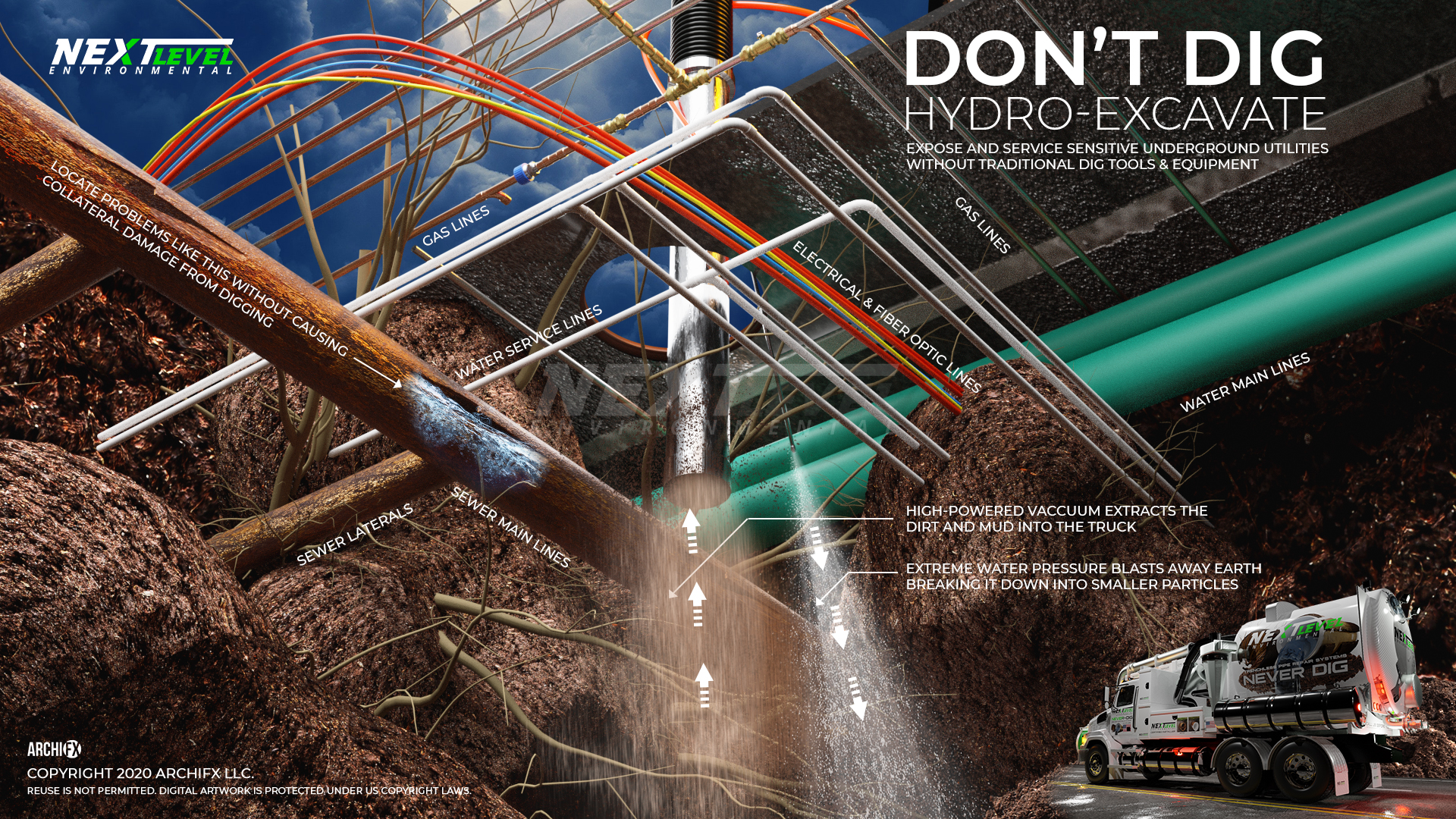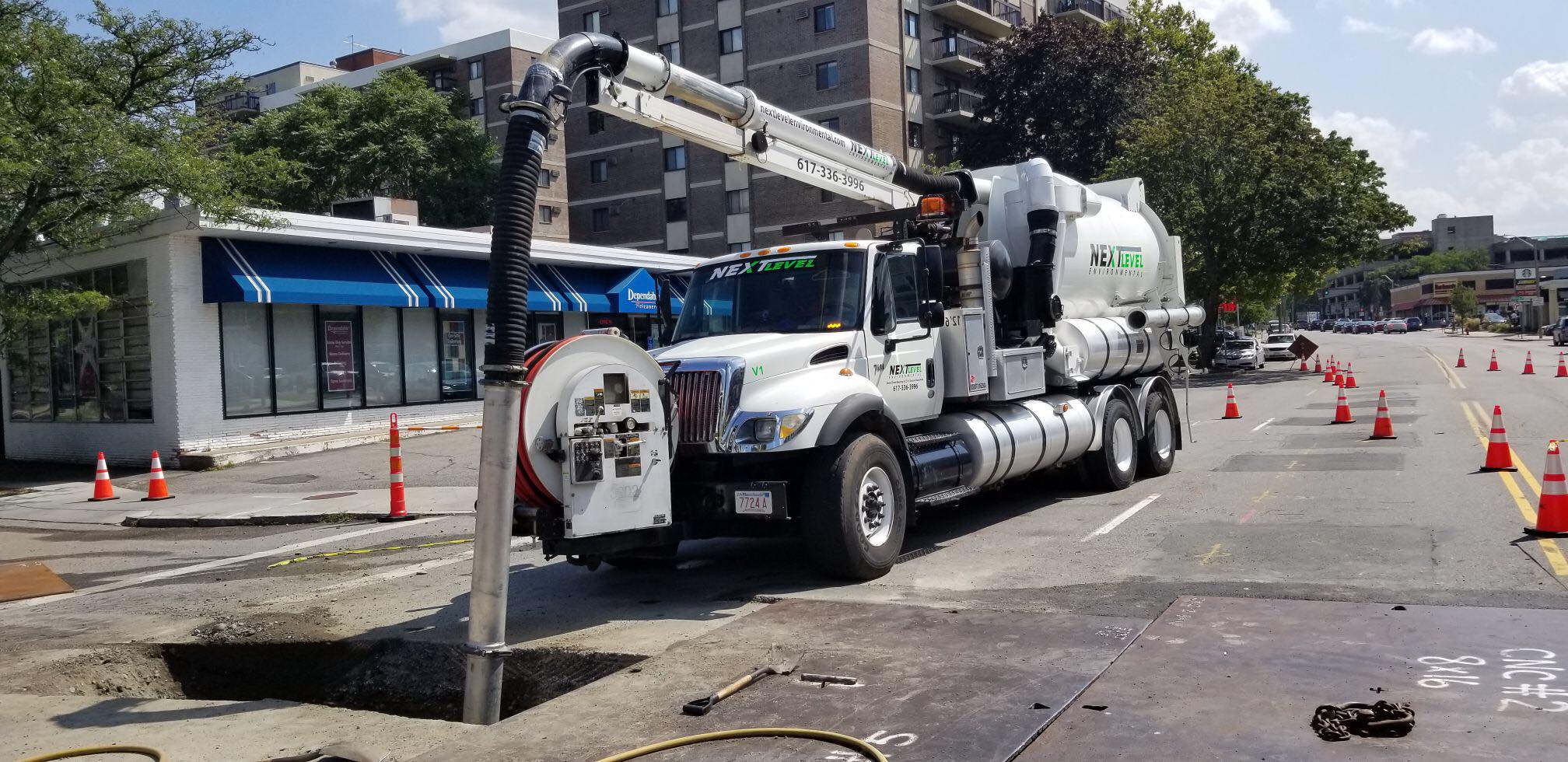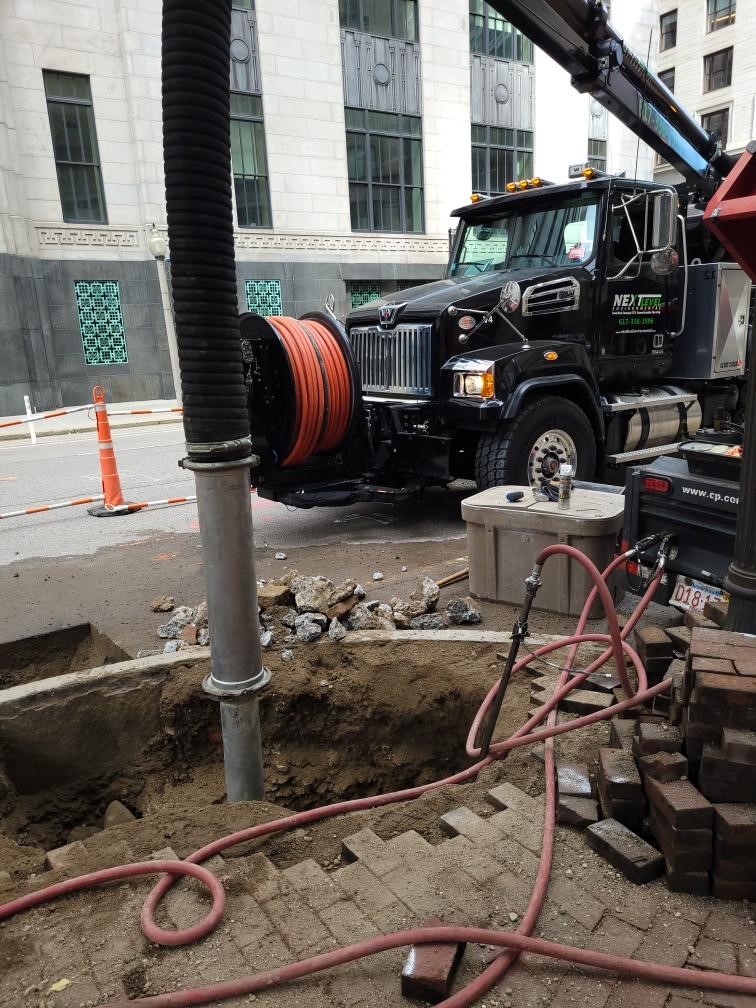
vacuum excavation BOSTON
Vacuum excavation, otherwise known as hydro excavation, is a great alternative to conventional excavation methods.
By combining high-pressure water with an air vacuum, these excavators can remove enormous amounts of unwanted material from an area with minimal damage.

Fully equipped to tackle the toughest jobs
we eliminate the risk
Vacuum excavation is a dual-purpose method for breaking up soil and underground material using pressurized water then suctioning it up to clear the area. The vacuum excavation trucks have both a high-pressure water jet and a vacuum system mounted onboard. They are used to quickly and safely dig through gravel, clay, and even frozen soil to expose buried cables.
The high-pressure water is powerful, yet it eliminates the risk of damaging buried utilities lines and pipes. This method is highly efficient and successfully disturbs the least amount of soil needed to uncover the utilities and clear the workspace. Once the vacuum tube has sucked up the dirt and debris into the tank and out of the way, work crews can do their job more efficiently.

benefits of vacuum excavation
-
WORKER SAFETY
Without a reliable way to locate and bypass crucial underground utility infrastructure, excavation can endanger the lives of work crews. Strikes on natural gas lines are particularly concerning. Vacuum excavation via water or air pressure is a monumentally safer approach, enabling construction teams to locate dangerous infrastructure more accurately. This reduces the risk of explosions, fires and digging-related deaths and injuries. A major part of the reason why vacuum excavation is becoming the future of construction digging is its capacity to prioritize safety. -
DAMAGE MITIGATION
When digging around critical underground cables and pipes, vacuum excavation supports damage control by mitigating the risk of puncturing lines or wells. Because there are no moving parts making contact with underground utilities, construction workers can carry out digging projects without disrupting essential infrastructure or incurring the major expense of property damage. It also leaves a minimal impact on the environment and eliminates the need to employ tools that could destroy the surrounding environment. -
CLEANER WORK SITES
Since vacuum excavation enables crews to simultaneously vacuum soil and debris into tanks while digging, it prevents the buildup of large piles of dirt and debris. That helps prevent soil deposits from significantly tarnishing streetscapes and clogging up storm water systems. Vacuum excavation is both cleaner holes and less cluttered work sites. -
REGULATORY COMPLIANCE
With organizations and associations pushing for both safer working conditions and less risky digging methods, state and local regulations are evolving in such a way that construction managers must pay attention. In order to fully heed government mandates, it’s necessary to employ the most compliant methods for digging. Vacuum excavation, with its safety-centered approach, makes proper compliance much more attainable. -
MECHANICAL SUPERIORITY
The equipment employed for vacuum excavation is immensely more advanced than traditional options. This equates to faster, more precise, safer projects requiring less manual labor and overall risk. Ultimately, these factors contribute to decreased project expenses and greater profitability in the long run.
Utilized in boston
- Locating and measuring underground utilities
- Excavating below a standing building, or remote excavation
- Cleaning valve boxes and catch basins
- Sewer line repairs
- Clearing out construction debris
- Cleaning environmental boring holes
- Surveying
- Geotechnical drilling
- Precision trench digging



